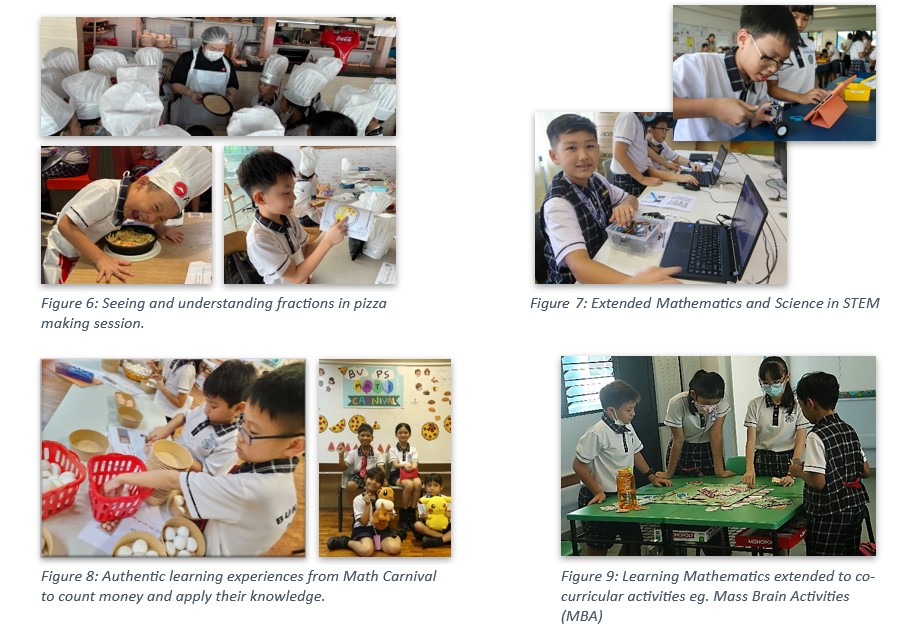Mathematics Department
We believe that every Bukit Viewan wants to and can learn Mathematics. Aligned with our school vision, the Mathematics Department aims to create a vibrant community of self-directed learners who not only acquire basic numeracy, but also enhance critical mathematical processes that support the development of 21st century competencies.
Our mission is to provide situated learning experiences for students to
demonstrate:
1. understanding of concepts and skills
through the use of Concrete-Pictorial-Abstract approach and various tools
eg. ICT
2. application of concepts and skills
learnt to solve problems in real-world contexts and solve non-routine problems.
3. reasoning and communicate connections
of big ideas from metacognitive or exploratory activities
4. confidence and interest in the
subject.
Curriculum Framework
The central focus of the Mathematics curriculum is the development of mathematical problem-solving competency. Supporting this focus are five inter-related components (in Figure 1) – concepts, skills, processes, metacognition and attitudes.
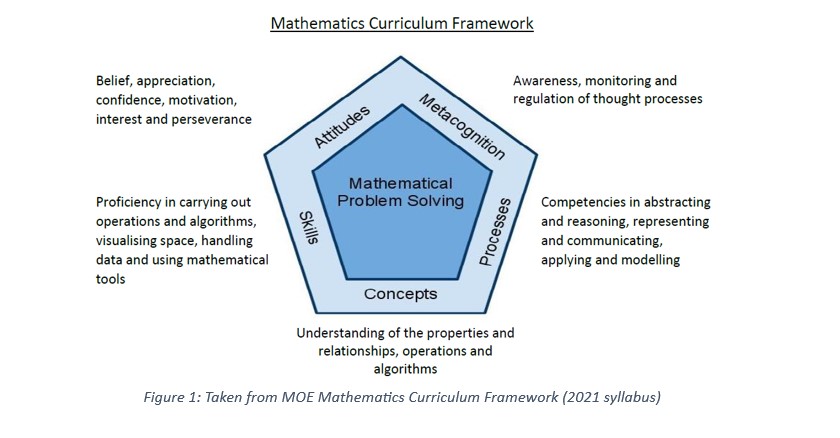
Problem Solving Routines
Adopting the disposition of being reflective is crucial in students’ learning. To be flexible and able to adapt in thinking is key for improvement. In our school, we establish routines of Polya’s 4 steps to problem solving using the acronym, Understand, Plan, Act and Look back.
Students become aware how to chunk information to make sense and meaning to problem solving. This routine helps students to tackle non-routine tasks systematically and effectively. When students are engaged in reasoning, critical thinking and communication, they learn to pose questions and devise different strategies to solve open-ended problems.
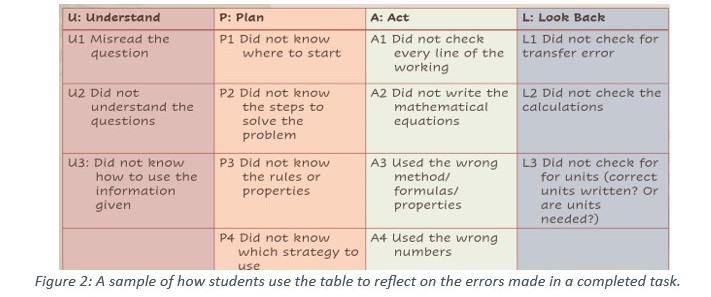
Key Programmes
Talent Development Programme (TDP) for Mathematics
1) Excellence 2000 (E2K) Mathematics Programme
The E2K Mathematics Programme is for Primary 4 and Primary 5 students
who demonstrate interest and ability in Mathematics. The programme
aims to develop students’ mathematical reasoning skills and deepens their
conceptual understanding through inquiry-based learning experiences (IBL).
Students have opportunities to work on their own or with peers and engage
in mathematical thinking through E2K resources such as puzzles, games and
stories designed for this programme. These rich learning experiences help
students to develop the habits, attitudes and dispositions mathematicians
possess as well as gain 21st century competencies such as critical and
inventive thinking and communication skills.
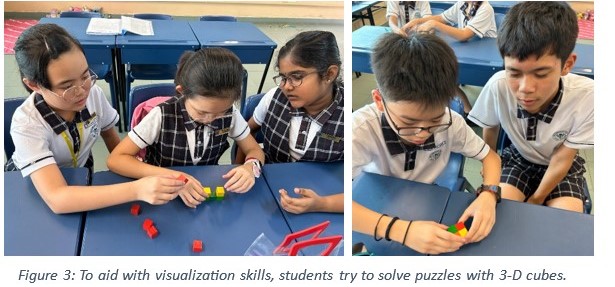
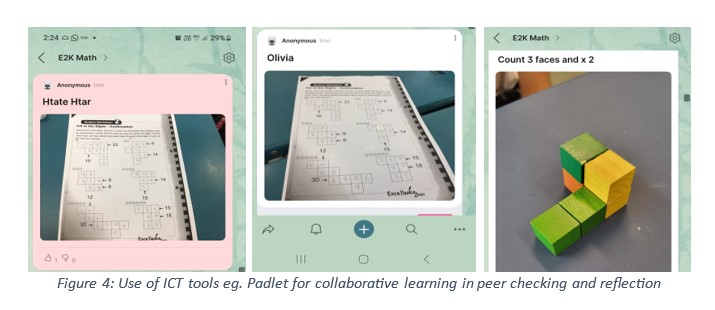
2) Mathematical Olympiad Programme
Mathematical Olympiad training programme is offered as an optional programme
open to Primary 4 to Primary 6 students who demonstrate interest and ability
in Mathematics. The objectives of the training programme are:
a) to enhance students’ mathematical knowledge and sharpen
their creative problem-solving skills.
b) to be familiar with Primary School Mathematical Olympiad
(PSMO) format and questions to build students’ repertoire of problem-solving
skills and strengthen their strategies learnt.
c) to be adequately prepared for Maths Olympiad competitions.
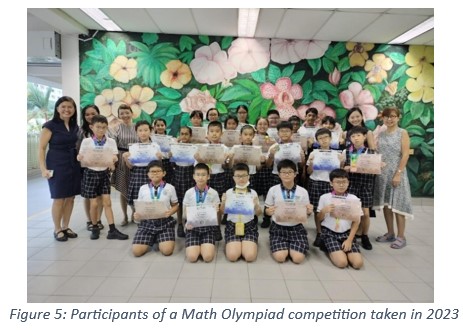
Competition platforms for participation:
-
Singapore and Asian Schools Math Olympiad (SASMO)
-
National Mathematics Olympiad of Singapore (NMOS)
-
Asia-Pacific Mathematical Olympiad for Primary Schools (APMOPS)
Learning Support in Mathematics (LSM)
The LSM Programme is designed to provide early intervention support in mathematics to students who need additional support in acquiring basic numeracy skills when they enter Primary 1. Provision of support is up to 4 years, but students’ progress will be reviewed annually. The focus of LSM is to build good mathematical understanding and aims to build students’ confidence and positive beliefs in their ability to do mathematics.
Integrated Learning Experiences
Mathematics is everywhere, be it in pizza making or a journey to the zoo or a neigbourhood. Bringing students into real-world contexts and applications from a borderless classroom is the value of appreciating the subject. Tasks, within students’ abilities and achievable with effort, help students see the relevance of mathematics to their everyday life and in the real world.
